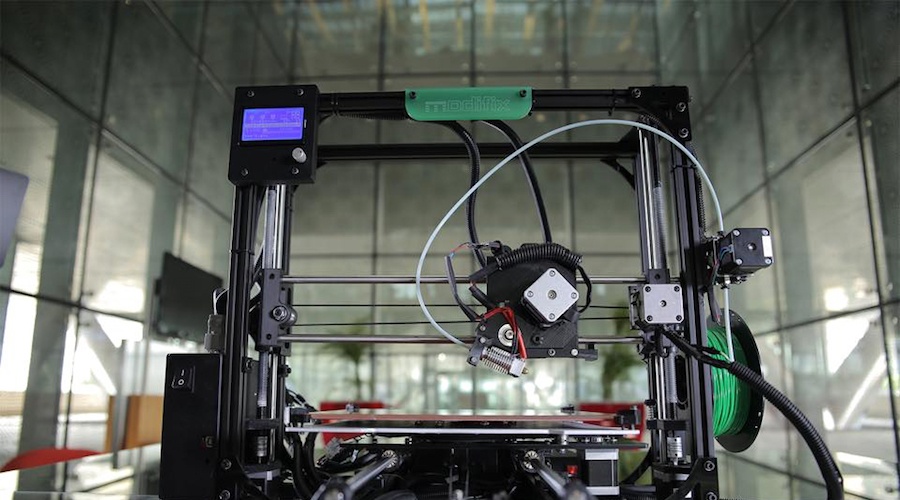Lebanon's Sevag Babikian defies rules of 3D printing on Stars of Science

Lebanese mechanics and robotics instructor Sevag Babikian is one of four Stars of Science finalists vying to win the largest entrepreneurial show in the region.
Babikian’s invention is a 3D printer capable of printing objects horizontally and obliquely, as opposed to the usual printers that only print in vertical layers starting from the bottom up.
“A 3D printer works by depositing layer upon layer [of material], in an additive way,” Babikian told Wamda. “That’s why printing overhanging or protruding parts, such as bridges, is difficult. You need to have a support for them, which is a waste of material.”
Babikian’s printer can produce overhanging parts without a base, meaning less material is wasted in the process. It also reduces the time it takes to print an object. In addition to being more efficient than 3D printers on the market, it also allows for more flexibility. The printer has two extra motors which allow for more flexible motion when printing, resulting in more diversity in shapes.
While Sevag may have a working prototype, his biggest challenge is that the adjustments he built were based on one specific type of printer, the LulzBot TAZ 5.
And while the same adjustments and concepts can be applied to other printers, the process is lengthy and challenging.
“Sevag is a very good engineer, probably one of the best I’ve ever had,” said Elias Chammas, an engineering professor and mentor on Stars of Science.
“The real challenge, however, was in branding and marketing his product, as some of the mentors were unsure of how Sevag can build a company from his product. But Sevag passed the customer validation phase and proved them wrong.”
Who are the other contenders?
Other contestants include Algerian engineer Abderrahim Bourouis who developed the Smart Autism Shirt that detects, monitors and calms children with autism who may suffer from extreme anxiety and panic attacks. Data signals from the shirt are sent to an app to help families monitor and calm autistic children.

(Image via Stars of Science Facebook page)
Bahraini Ghassan Yusuf developed an automatic scoring and management device to help improve defensive moves in Taekwondo. The automated scoring will also give skeptical fans confidence in the fairness of matches.
Sadeem Qdaisat from Jordan was previously turned down by Stars of Science.
In a star comeback, the scientist automated the process of genetic testing in hopes of eliminating human error and cross contamination. The process he developed lowers cost, increases time efficiency, and improves the accuracy of the outcomes.
Voting began on Saturday and ends on Thursday, November 17. Vote now.


